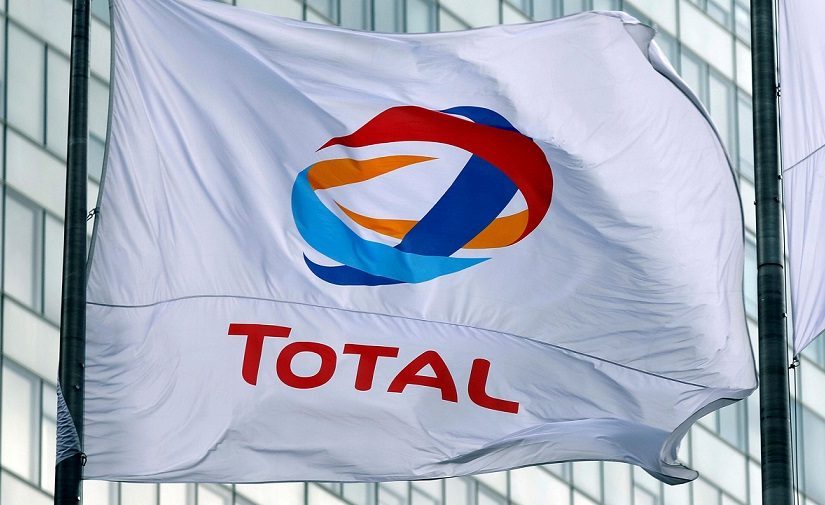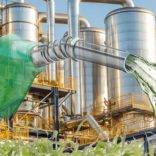Mozambique’s $57 billion of LNG projects get reboot despite risk - Bloomberg
Mozambique: Finance guaranteed for Area One LNG project – AIM report

in file CoM
The Mozambican Minister of Mineral Resources and Energy, Max Tonela, has guaranteed that the finance necessary for the liquefied natural gas (LNG) project in Area One of the Rovuma Basin, in the northern province of Cabo Delgado, is assured.
Speaking at a Maputo press conference on Friday, Tonela told reporters “this week the signing was concluded of all the financing contracts to the sum of 15.8 billion US dollars. That is the debt component, obtained though contracts with banks and financing agencies. The rest will be financed by the resources of the consortium members themselves”.
Tonela was speaking immediately after holding a meeting with Arnand Breuillac, the President for Exploration and Production of the French oil and gas company, Total, which heads the consortium exploiting the natural gas reserves in Area One of the Rovuma Basin.
“With this component, 100 per cent of the funds required to finance the project – which amount to 23 billion dollars – are available”, said Tonela.
Total took over from the US company Anadarko last year as the operator of the project, which is known simply as “Mozambique LNG”. It has a 26.5 per cent participating interest in the project. Its partners in the consortium are the Japanese company Mitsui (20 per cent), PTTEP of Thailand (8.5 per cent), the three Indian companies ONGC Videsh, Beas Rovuma Energy, and BRPL Ventures (each with 10 per cent), and Mozambique’s own National Hydrocarbon Company, ENH (15 per cent).
ENH does not have to produce its share of the funding immediately. Tonela said that, during the research and prospection phase, ENH will be carried by the other partners in the project. Nonetheless, ENH is currently seeking to mobilise funds of its own, to ensure better terms for maximizing its participation in the project.
Tonela said he had also discussed the training of Mozambican labour with Breuillac. The government has required that the partners in the consortium make available resources to ensure that Mozambicans will be trained in areas, notably in the hydrocarbon industry, where currently the country has no expertise at all.
For his part, Breuillac said that his visit to Mozambique is intended to reaffirm Total’s commitment to the development of the LNG projects.
“I would also like to restate that this project will be undertaken to the highest standards with regard to its environmental impact, and taking into consideration all the benefits that could be generated locally”, he said.
Total, he added, wanted “effective involvement of the local population” and to ensure that the project “brings benefits to the country and to the whole Cabo Delgado area”.
“We still have a lot of work to do”, continued Breuillac, “but we are working well with our partners, and under the supervision of the National Petroleum Institute”.
Asked if the attacks by islamist terrorists in Cabo Delgado would not ruin the prospects for Total’s investment, Breuillac replied that his company is working with the Mozambican government to create the best possible conditions for undertaking its activities in safety.
“Security is the responsibility of the government, and we are confident that we are working with the government to guarantee the secure implementation of the project”, he declared.
The chairperson of the ENH board, Estevao Pale, also spoke at the press conference and insisted that the financing of the ENH participation in the LNG project is guaranteed. The company was currently focusing on cheaper sources of finance.
He added that ENH hopes to sign a cooperation protocol for the training of Mozambicans in the various countries where Total has its operations.
The Mozambique LNG project includes the development of the Atum and Golfinho gas fields in Area One, and the construction onshore, in the Afungi Peninsula, of two liquefaction factories (known as “trains”), with the production capacity of 12.9 million tonnes of LNG a year.
Area One contains known reserves of over 60 trillion cubic feet of natural gas. 18 trillion cubic feet will be used by the first two Afungi trains. Total says that almost 90 per cent of expected production has already been sold through long term contracts with LNG buyers in Asia and Europe.












Leave a Reply
Be the First to Comment!
You must be logged in to post a comment.
You must be logged in to post a comment.